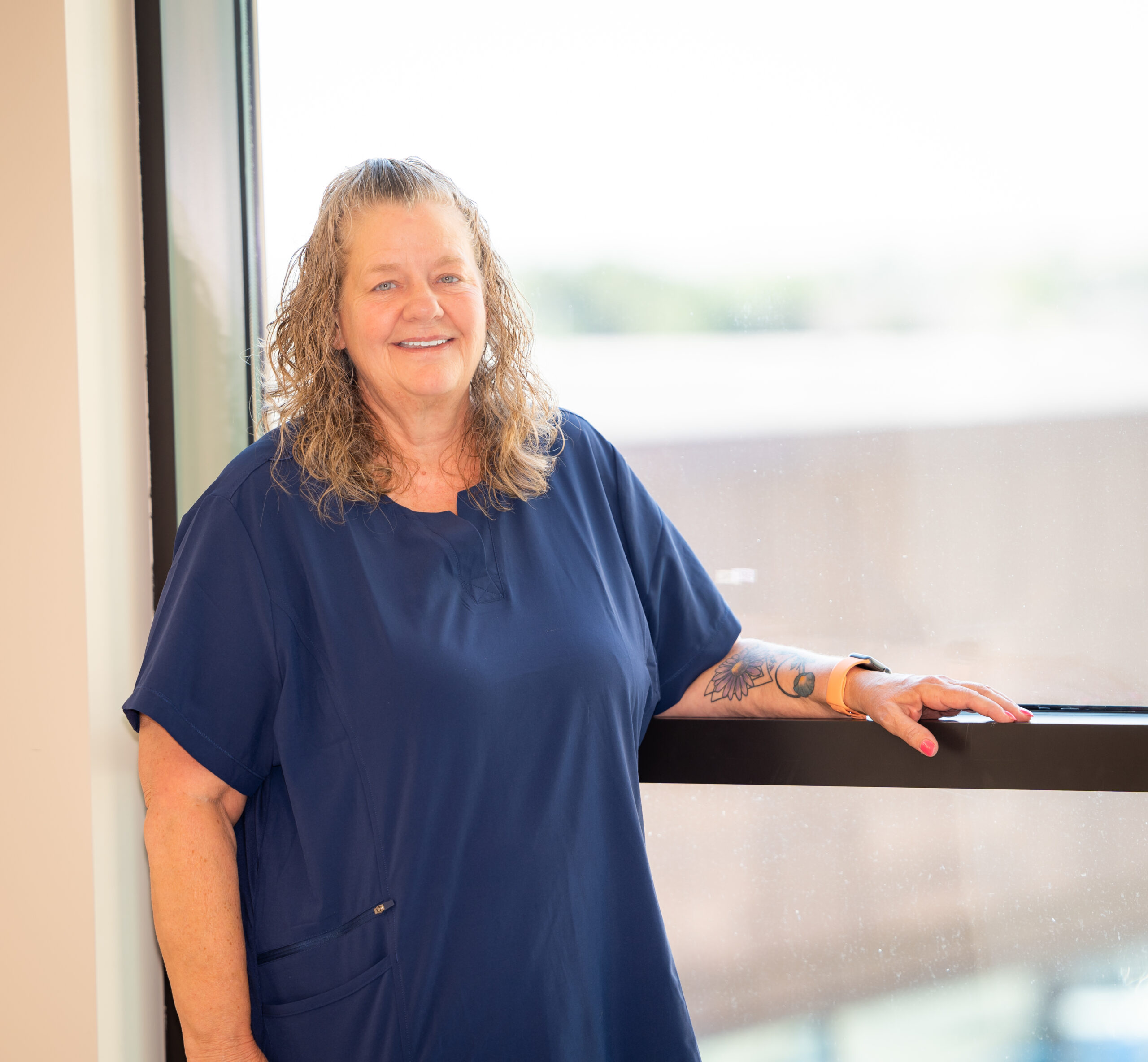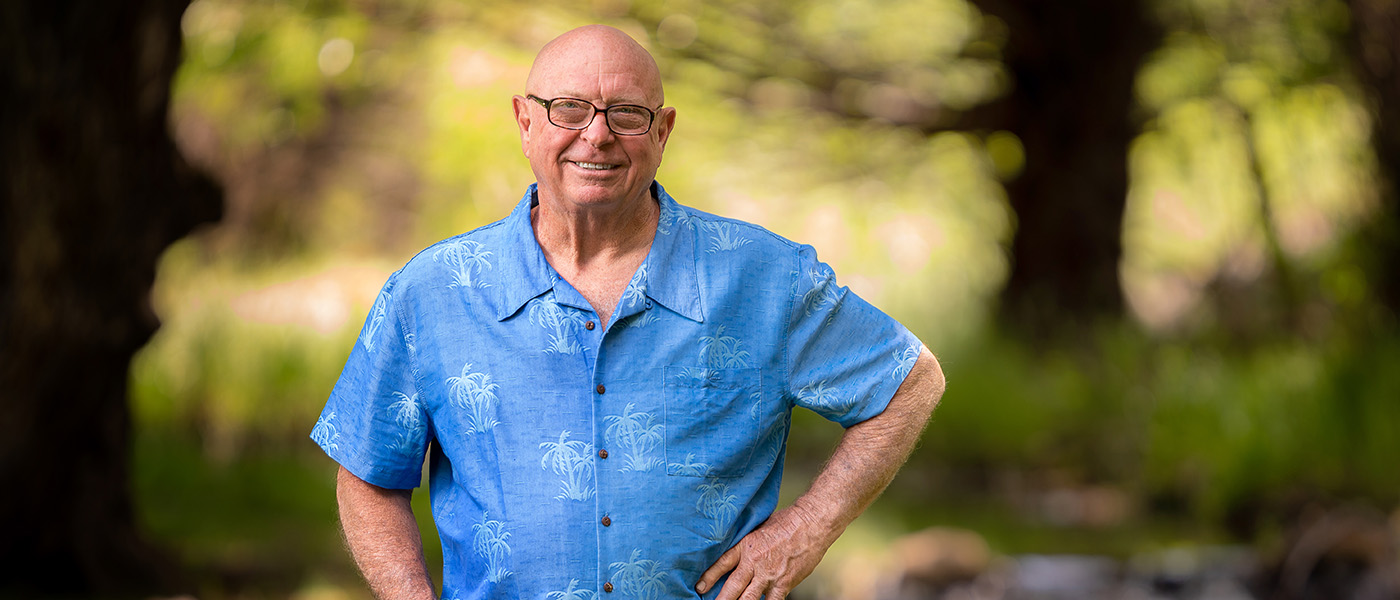Monument Health physicians and caregivers are committed to delivering high-quality care that makes a difference in our communities. That’s why when a nurse at the Heart and Vascular Institute went the extra mile to ensure a patient facing a critical medical situation in Mexico could receive life-saving care at home, it made a lasting impression.
When Shelley Paris, RN, a patient care coordinator at Monument Health Heart and Vascular Institute, received a pleading call from Sandy Kruse, whose husband, Ralph, was experiencing a cardiovascular incident in Mexico, she did what her passion for nursing has always led her to do: be there for her patients.
Ever since she began her career as a nurse 25 years ago, Shelley has believed that developing strong connections with patients is one of the most important aspects of her job.
“I’m very protective of my patients,” said Shelley. “That’s why I hand out business cards with the direct line to my desk to each of them. I think it’s important that they talk to me and not somebody that doesn’t know anything about them,” she said.
Shelley didn’t know that when she handed a card to Sandy and her husband Ralph Kruse, she would later become a key player in saving his life.
A health crisis abroad
It was December of 2023. Enjoying retirement, Hill City residents and high school sweethearts, Ralph and Sandy were spending a winter at their vacation home north of Puerto Vallarta, Mexico, as they had done for the past 20 years.
Though generally healthy, Ralph had been diagnosed in 2016 with aortic valve disease, and underwent open heart surgery that same year to have a tissue valve replaced. “Generally, these valves tend to last anywhere between 10 to 15 years,” explained Rajesh Pradhan, M.D., FACC, who has been seeing Ralph as a patient. “But it’s hard to predict who gets that amount of time.”
Just weeks after the couple arrived in Mexico, Ralph started experiencing symptoms that indicated something might be wrong. He noticed the symptoms worsening as his neighbors cut and burned green brush in the lot in front of the couple’s house.
“The smoke came into our house so thick that I could hardly breathe,” explained Ralph.
After a bad night of sleep and a trip to the local doctor for a nebulizer treatment, it became clear that something was, in fact, seriously wrong.
“By the end of that afternoon, I asked Sandy to take me to the emergency clinic,” recalled Ralph. “They ran an X-ray on me and immediately shoved me in an ambulance and sent me to the Punta Mita Hospital in Mexico. For the next five or six days, I don’t remember much of anything.”
The race for a bed
Met with the news that her husband’s heart and kidneys were failing, Sandy watched as Ralph was placed on a ventilator while the medical team at Punta Mita Hospital worked to clear an infection that had developed in his lungs.
With 80% failure in one lung and 60% in the other, Ralph remained on the ventilator for six days. Meanwhile, an echocardiogram revealed that his aortic heart valve was failing.
Following this discovery, the cardiologist got the Kruse couple together, advising them to try to get Ralph back to the United States for a transcatheter aortic valve replacement (TAVR), which the hospital in Mexico was not equipped to do.
“I got on the phone right away. The doctors had told us they thought we should try to get back within 72 hours,” said Sandy. “We were checking in Dallas, Houston, San Antonio, Phoenix and Tucson, and couldn’t find a hospital that would accept him. I was thinking, ‘Where are we going to go? We don’t know where we’re going.’”
After four days of desperately searching for an open hospital bed, Sandy remembered the business card she was given, took a chance, and called Shelley Paris, RN, at the Monument Health Heart and Vascular Institute.

Shelley Paris, RN
“I’ve always been a patient advocate. So, when a patient calls needing something, it’s never been in my vocabulary to say, ‘That’s not my job.’”
“I remember answering the phone, and I could hear the desperation in her voice,” said Shelley. “I’ve always been a patient advocate. So, when a patient calls needing something, it’s never been in my vocabulary to say, ‘That’s not my job.’”
Guided by this dedication to patient advocacy, Shelley worked with Dr. Pradhan and caregivers at Monument Health to find an open bed, allowing the couple to come back to Rapid City.
The Kruses were finally coming home.
The journey home
After nearly three weeks at the Punta Mita hospital, the Kruses were met with an air ambulance and Sandy watched as Ralph was carried onto the plane before she boarded for their journey to Rapid City Hospital.
“It’s where I wanted to go in the first place,” Sandy said. “I didn’t want to go to Dallas, Houston or one of those other places.”
“By the time we got to the hospital, they were prepared and waiting for us,” she remembers. “They even had a person on staff that spoke Spanish to coordinate with the hospital in Mexico, and the nurses in Rapid City had the room ready.”
While the medical care team worked to stabilize Ralph, Dr. Pradhan and Joseph Tuma, M.D., FACC, FSCAI, scheduled the TAVR procedure he needed.
“He had the TAVR, and everything went great. By Wednesday, Jan. 24, he was discharged after 33 total days at both hospitals. Just getting back here saved his life,” said Sandy.
Exceptional care, lasting impact
Today, Ralph is doing well with a clean bill of health.
“We’re so fortunate to have Monument Health here, and to have the Heart and Vascular Institute,” said Ralph. “We can stay right here in the Black Hills for the best care in the world.”
As for Shelley, the Kruses credit her for being the catalyst that helped to save Ralph’s life.
“We had a follow up with them, and when I went out, Sandy jumped up and hugged me,” recalled Shelley. “Tears were in my eyes, and Ralph said, ‘You’re our angel.’ I’m just a nurse, but Ralph called me an angel.”

